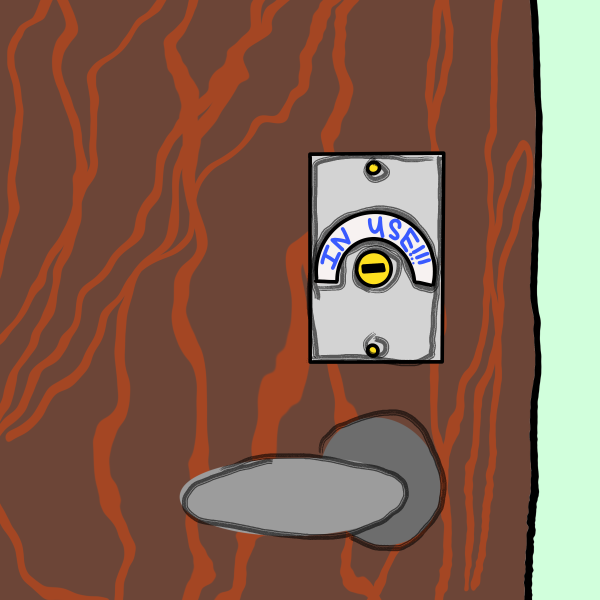We’re feeling the burn
Student burnout is a far too common occurrence on college campuses.
I like to make myself coffee in the mornings. Recently, I have noticed that there are always a few grounds that find their way into my mug. I take a sip and find myself with loose granules in my teeth or sticking to the back of my throat. When I first pour the coffee cup, everything is so good…in theory. Warmth and caffeine all wrapped into one convenient beverage, ready to propel my day. I have a strong enough grip on the mug that it won’t spill, and I even make enough coffee for two more full cups.
Everything is in order, until the grounds appear. In that moment, my drink is ruined. It falls apart, and the blame is on me for not perfecting the art of coffee-making. Or maybe the blame was on the quality of my French press. But it always feels like the blame is on me.
Now imagine that coffee mug is a typical student’s Google Calendar. It’s formulaic in its intention. Everything has its place, and everything has its order. The calendar is color-coded and shared with every supervisor or friend that the student deems worthy. Every little component of that schedule works…in theory. But then suddenly, something doesn’t fit. There is no time to squeeze in that doctor’s appointment. Or something goes wrong. That test that was a surefire A actually came back as a D. This perfectly planned life goes awry, and nothing feels the same. It leaves a bad taste in the student’s mouth. A taste of bitter coffee and tough grounds. It’s horrible, it’s overwhelming and it’s tiring. Not surprisingly, it has a name: burnout.
Burnout can manifest in a number of different ways, depending on the student and the circumstances. The website for Florida National University does a great job of breaking burnout down, describing it as “a state of emotional, mental, and physical exhaustion that is caused by excessive and prolonged stress”. If you find yourself with a packed schedule and a laundry list of responsibilities, you could be at risk for burnout. It’s wonderful to have a healthy number of experiences going on at once, especially if they are ones you are excited about, but they can all become difficult to balance in accordance with one another. Homework, leadership roles, extracurriculars and getting to work on time may get to a point where it’s all too much. Perhaps you were overambitious with your Google Calendar. Maybe not everything can work together all of the time.
This is when burnout can sneak in and take over. You could feel yourself drawing back, or being less interested in getting things done. There’s also an overwhelming sense of exhaustion that accompanies it, making you want to press “snooze” a few extra times in the morning. Florida National University discusses how it can drain you “to the point where you may feel like you have nothing more to give.”
First-Year Will Tzavaras says that he hasn’t felt these effects just yet as he rounds out his second semester at Hamline. He has been balancing his commitments as both a student and an athlete.
“I’ve seen my teammates struggle and I don’t want to be in their position,” Tzavaras said. But looking forward, he isn’t sure what the future will hold for him in terms of burnout. “For now, I can’t predict whether it will happen or not.”
What can be done for students like Will who are still at the beginning of their college careers? Is there a way to prevent burnout for them so that they don’t have to face it down the line? Time management can be a huge factor . Students at Hamline do have a reputation for being extremely involved. This isn’t inherently a bad thing, but if it isn’t managed well then it can be. After all, time management is a huge contributor in combating burnout. It’s easy enough to plan out how your schedule is going to look on a daily basis, but is it practical? Is it organized in a fashion that gives you some leeway, time to study or even proper time to sleep? If you want to avoid burnout, prioritizing your time is key.
Also, be realistic with yourself. Don’t set goals or agree to do things that you know you can’t get done in a reasonable amount of time. Saying “yes” to everything may make you look good at first, but it could end up hurting you and others down the line if tasks don’t get completed. So don’t place that unnecessary stress on yourself if you can help it. You can fill up your plate all you want, but by doing that you risk failing to fill up your heart. At the end of the day, we all need to take care of ourselves more.
As I write this piece, burnout feels menacing and unavoidable. I know that I have a lot going on right now. I feel it every single day, and some days I handle it better than others. I like to think that I’m skilled at balancing my commitments. Usually, I can make it work out. But sometimes, I just want to throw a temper tantrum and whisk all of my obligations into oblivion. I just have to remind myself that my feelings are valid, and so are yours. Situations like burnout are extremely applicable to students. We are ambitious creatures, but what it comes down to is how we are going to take that ambition and turn it into something that is less overwhelming and more of a success story.






